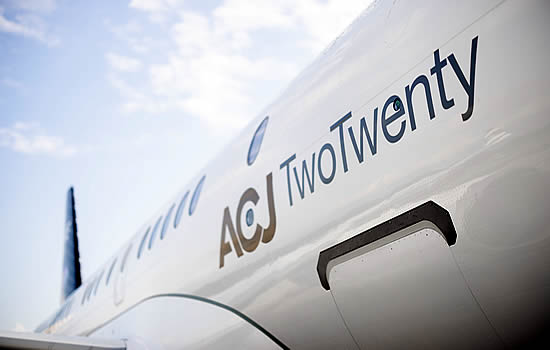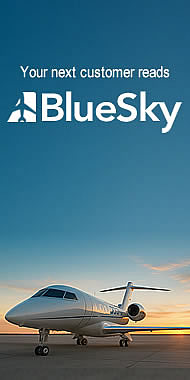United StatesUS corporations turn to business aviation with growing emphasis on efficiency and sustainability |
US-based corporations that use business jets are placing an increasing focus on how these aircraft can help them run their operations more efficiently and with lower environmental impact.
This is among the findings of new research commissioned by Airbus Corporate Jets (ACJ), which surveyed senior executives at large US companies with an annual revenue of more than $500m.
The findings show a clear rise in corporate jet use - over the past two years 83% of corporates surveyed reported an increase in both continental and intercontinental business travel.
Chadi Saade, President of Airbus Corporate Jets, said: “This research reinforces the importance US corporations are placing on efficiency, sustainability and productivity from business aviation. With advances in sustainable fuels, optimized fleet management and new-generation aircraft, the sector is well-positioned to meet the needs of companies looking to grow responsibly while ensuring their employees’ productivity and well-being.”
The study reveals a growing link between business aviation and sustainability. Almost nine in 10 (87%) firms interviewed that own or lease a business jet are investing more in fleet management technology to optimize routes and reduce fuel burn, while 90% of the charter users say they now prioritize newer, more efficient aircraft to limit the environmental impact of flights.
Sustainable aviation fuel (SAF) is also emerging as a key driver of future demand. Nearly nine in 10 (87%) respondents believe that more affordable and easier access to SAF will boost sales of business aircraft, with 37% predicting a significant rise. Over the next five years, 87% of US corporations expect SAF use within the sector to grow, with 46% anticipating it to increase significantly.

The survey also highlighted a trend towards large companies purchasing large jets to operate corporate shuttle service for employees. Some 63% cite comfort and a better working environment as the top reason, followed by cost management (59%), health and safety (54%) and productivity improvements (53%).
Fleet upgrades are firmly on the agenda. When asked why they would consider new aircraft, US corporations pointed to improved fuel efficiency, operational savings and stronger value retention. Indeed 36% expect the importance of residual values to increase dramatically when they next purchase an aircraft, with a further 51% expecting a slight increase.
ACJ offers a range of large business aircraft. The ACJ TwoTwenty is carving out a whole new market segment - ‘The Xtra Large Bizjet’.
The ACJ TwoTwenty offers twice the cabin real estate compared to similarly priced ULR business jets with market-leading fuel efficiency and unrivaled reliability. It occupies the same parking footprint as competitive ULR jets and can take off from the same airports, but the ACJ TwoTwenty operating costs are one-third less.
With a range of up to 5,650 nm (more than 12 flight hours), the ACJ TwoTwenty can meet the requirements of 99.9% of all US departures, connecting city pairs including Los Angeles to London, Miami to Buenos Aires, and New York to Sao Paulo.
As with all ACJ aircraft, the ACJ TwoTwenty is capable of flying with up to a 50% blend of kerosene and sustainable aviation fuel (SAF) while keeping to the technical specifications of Jet A. All Airbus commercial aircraft and helicopters will be capable of operating with 100% SAF by 2030. This capability will play an important role in the sector’s decarbonization journey.
Over 200 Airbus corporate jets are in service worldwide.

BlueSky Business Aviation News | 16th October 2025 | Issue #815




